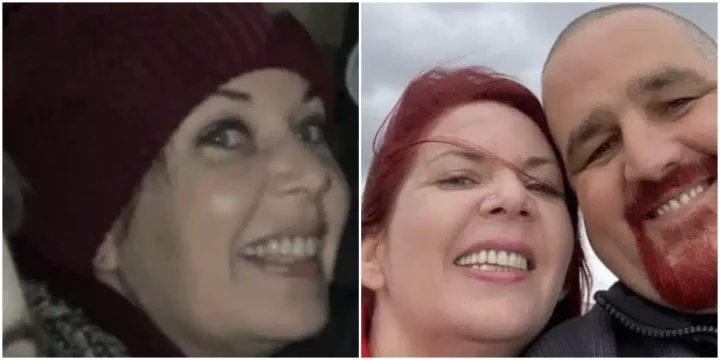
A 45-year-old woman, Michelle Whitehead lost her life after consuming excessive amounts of water during her stay at the Millbrook Mental Health Unit in Nottinghamshire, England.
The incident occurred on May 5, 2021, just two days after Michelle, who had suffered a mental breakdown, was admitted to the facility.
Michelle’s husband, Michael Whitehead, laid the blame squarely on the health facility, asserting that timely intervention could have saved his wife’s life.
“Had they acted earlier Michelle would have been taken to ICU and put on a drip. That would have saved her life,” Michelle’s husband, said.
Michelle had a condition known as psychogenic polydipsia, characterized by voluntary and excessive water intake, often observed in individuals with psychiatric or neurodevelopmental disorders.

According to Michael, the health facility failed to diagnose Michelle with psychogenic polydipsia, allowing her unsupervised access to water in her room.
Tragically, the staff allegedly administered tranquilizers to help her sleep, and Michelle slipped into a coma.
The facility reportedly did not realize her deteriorating condition until four hours later.
An investigation into Michelle’s death revealed that hospital staff deviated from their policy, with distractions such as mobile phones impeding the quality of care.
Nottinghamshire Healthcare NHS Foundation Trust admitted to eight failings, and the investigation concluded that these lapses “probably more than minimally” contributed to Michelle’s untimely demise.

The coroner overseeing the case emphasized the need for the mental health unit to improve its ability to detect psychogenic polydipsia, aiming to prevent similar tragedies in the future.
Ifti Majid, the CEO of Nottinghamshire Healthcare NHS Foundation Trust, issued an apology to the grieving family, acknowledging the lapses in Michelle’s care.
“We are considering the findings of the jury and the coroner. We acknowledge that there were aspects of care which were not of the quality they should have been and will address the concerns raised so that the experience for patients now and in the future is improved,” Majid told the BBC.
Michelle Whitehead, described by her husband as “warm, caring, and easy to love,” leaves behind a devastated family.
The duo were childhood sweethearts; Michael was 17, and Michelle was 15 when he first met her on a bus.
They were together for 30 years, raising two sons, one of whom had Down syndrome.
Michelle dedicated 19 years to caring for her disabled son, sacrificing her career as a nursery nurse.
dolor quia et dolores praesentium sint illo qui dolorem fuga. qui ab repellendus tempore perspiciatis accusantium distinctio id est cum ipsam. qui ex dolorem occaecati vel odio eveniet ut quasi praesentium iste voluptatem odio. vel et atque est voluptas et provident doloribus reprehenderit animi est veniam at neque repellendus fuga commodi occaecati molestiae aut. sed error et ut neque eaque maxime voluptatum architecto.
quia neque illum odit hic id suscipit fuga earum tempore molestiae est doloremque illo. id inventore dolore excepturi adipisci nobis ipsam et deleniti voluptates et enim ea tempora. rerum velit nesciunt cumque enim saepe est laborum excepturi velit quasi cumque. perspiciatis harum ipsam voluptate qui ratione dolore accusamus aliquid.